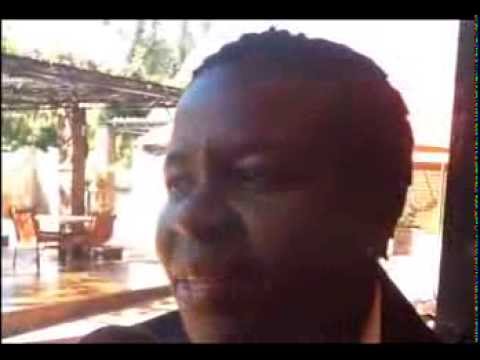
TWO unidentified police officers yesterday stormed a constitutional youth conference in Bulawayo and tried to force its cancellation on claims that it was an illegal gathering that was likely to turn violent.
NQOBILE BHEBHE CHIEF REPORTER
The meeting held at a city hotel was attended by close to 100 youths drawn from across the country, including former Women’s Affairs, Gender and Community Development deputy minister Jessie Majome.
The meeting was organised by the National Youth Development Trust (NYDT).
Barely five minutes into the meeting, one officer stormed the venue and instructed the first speaker, director of Habakuk Trust Dumisani Nkomo, to stop his address.
“This meeting is cancelled, stop, stop, stop,” he shouted.
But Nkomo stood his ground and NYDT also resisted the cancellation saying the meeting was legal.
Majome condemned the action saying Zimbabwe is now fast sliding into a police state.
- Chamisa under fire over US$120K donation
- Mavhunga puts DeMbare into Chibuku quarterfinals
- Pension funds bet on Cabora Bassa oilfields
- Councils defy govt fire tender directive
Keep Reading
“The action by these people is deplorable. It’s unconstitutional and shows blatant disregard of the law and that the government has no intention of implementing the Constitution,” the MDC-T MP said.
“It’s sad and ironic that at a workshop by the youths of Zimbabwe to discuss and consolidate the gains of a new Constitution, the police decide to come and interrupt in a blatantly unconstitutional manner.
“It’s time that the people of Zimbabwe take ownership of the Constitution.
“It’s clear that the government is not willing to implement the Constitution.
“The police just demonstrated that the Zanu PF government is not willing to reform.
“They could not show me a constitutional section that prohibits freedom of association,” Majome said.
NYDT director Liberty Bhebhe said police disrupted the meeting claiming that it would be violent.
“A person who said he is the officer in charge of Hillside Police Station told us that they had received a telephone call from their superiors at Central Police Station that we must stop the meeting. But they were not given reasons,” Bhebhe said.
“We then went to Central Police Station and were told that they were acting on intelligence information that indicated that the meeting would be disrupted by some people whom they could not identify.
“I told him that we were going ahead with the meeting.”
The youths also took a swipe at the attempt by the police to block the meeting saying the security sector is a threat to the implementation of the Constitution by being repressive.
They said the security sector needed urgent reforms. The youths expressed concern over “excessive” powers still vested in the president.
Political activist Godwin Phiri said the implementation of the Constitution was fraught with challenges and infighting among opposition political parties would have a negative bearing.
“Political parties have abandoned their obligation of playing an oversight role on the Constitution,” he said.
“They have stopped discussions around the Constitution and now focusing on power struggles within their parties. It would be difficult for the Constitution to be implemented.”
The NYDT is a youth-focused organisation whose commitment is to ensure that young people in Zimbabwe transform and reinvent themselves to exert influence by taking charge of their destiny.
It creates platforms to enable young people to participate, interact and voice their concerns on critical national issues.
The new Constitution was endorsed in a referendum in March 2013 and it clips the powers of the president and imposes a two five-year presidential term limit.
However, the presidential term limit does not apply retrospectively.
Zimbabwe had been using a peace-pact Constitution crafted at Lancaster House in London in 1979 to end a protracted war of liberation.
The Constitution was amended 19 times to entrench President Robert Mugabe and Zanu PF’s rule.










